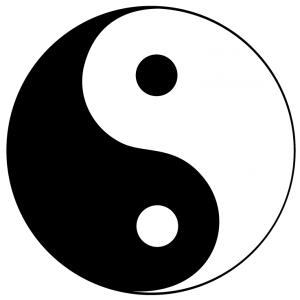These are harrowing times. The world seems to be going to hell in a handbasket, wrapped and delivered by those claiming to govern, serve and provide. Intelligence, truth, or justice seem no longer to be valued or aspired to.
So harrowing that even the most stoically optimistic might ask: what’s the point? If nothing seems to matter, if there are no rules and no individual or group accountability…well, why should anyone give a #*&$?
As a psychology major in college, I was first exposed to existentialism in the classroom. This philosophy is concerned with finding self and meaning in life through free will, choice and personal responsibility. Nietzsche’s concept of the ubermensch (or superman) as the ultimate expression of an evolved human appealed to, even excited me, but I found the connected concept of nihilism perplexing.
If existentialism directs each of us to find our own meaning in life’s experience, nihilism is the darkly whispered question: does what we do mean anything? Is it worth caring about anything at all? A step-parent to apathy, nihilism drains away all meaning, leading to despair or a lack of belief in anything at all. Not family. Not God. Not self. Nothing. Except perhaps the desire to destroy anything that points toward meaning and belief.
Recently, I found myself reflecting on a research paper I wrote for that class, postulating that at any given moment, both the progressive evolution of self through existential drive and the corrosive emptiness of nihilism co-exist – like yin and yang – each growing and shrinking through time in contrast to the other.

Another study that I have been immersed in is the yogic philosophy which in part addresses the present moment, aiming at the shedding of egoic influences and at attaining a perspective of non-attachment.
These principles do not erase our past or remove the future. They do not require a complete loss of self, only a letting go of the illusion of self. Non-attachment is not about nothingness, but about letting go of the way the world wants us, thus accepting the way we are. It asks that we seek fulfillment by turning inward, through a process of reflective awareness, inquiry and discovery. Through this process we change and as a result, the way we view the world changes also. In modern terms, this means the undoing of social conditioning and preconceived notions in order to discover our authentic selves, our true purpose.
And for me, here lies the intersection of existentialism and yoga. As the Ancient Greeks might say, thou must know thyself to become thyself. Each of us can choose to live life as an intentional process of development or as a series of random, meaningless events. In either case, we are subject to the consequences of our choices. Let’s go back to giving a #*&$.
Doing so – or not – is a choice. Not just one choice, but a choice made constantly and daily. Since we need not look far these days to lose heart, what determines whether we succumb or rise above? We must choose to have faith in possibility and find the courage to think for ourselves. Then we are free to create the ubermensch in each of us.
Only when we believe something is possible, when we pursue it with curiosity and purpose, only then does it have a chance to become reality. When we stop believing and accept only what we are told, we give away our power.
For every one of us can be powerful. We each have the choice to step into that power. In making that choice, we can create meaning and find purpose. In accepting responsibility for that choice, we counter the forces of nihilism and climb towards our highest potential.
Patricia Tyrell
Franklin
